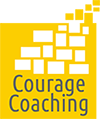I breathe, but not deeply or intentionally very often! My mind is like a washing machine. Any number of different items spilling around and around all at once with no definition, focus or differentiation.
Everything in together.
I allow my mind to race ahead, it endeavours to think about any number of important things or tasks all at once and often tells me lies about myself which can ultimately distract and disable any meaningful action on my part.
The mind can be a battle ground!
I recently ran a workshop for an NHS team around the theme of wellbeing. As part of my research I was introduced to Schwartz’s four energy needs – Physical, Mental, Emotional and Spiritual. As we consider our mental energy and what our minds need in order to function well he talks about our Poverty of Attention. The notion that actually in order for us to perform at our best, to engage the creative side of our brain and get high leverage tasks done we need to learn to focus, to intentionally allow our brains space free from distraction (internal & external), to stop trying to multi-task and always be driven by other people’s agendas, was somewhat reassuring. William James wrote in 1890:
“Everyone knows what attention is, it is the taking possession of the mind, in clear and vivid form, of one out of what seem several simultaneously possible objects or trains of thought….it implies a withdrawal from some things in order to deal effectively with others.”
Our minds need looking after just like our bodies do. We are not superhuman! Yet all too often we misunderstand what working productively looks like, thinking that because we are busy, reactive and
able to instantly respond we are getting the job done and getting the best from ourselves or our teams.
But perhaps this isn’t true? How often do you get to the end of the day and ask ‘what have I actually achieved today?’
We need to intentionally make the time to stop, breathe, consider, block, boundary our time and plan tasks, goals and outcomes, giving our minds the opportunity to think deeply and perform from a place of renewal and abundance rather than deficit and distraction. Thinking about how we work and making some small changes will enable us to take control of our minds, capture our thoughts, solve problems satisfactorily, find solutions that work and enhance our work experience. We will have a greater sense of purpose and definition around our work and relationships.
As William James (pre-screens!) wrote – attention demands we ‘withdraw from some things in order to deal effectively with others.’ Not doing so lands us in attentional poverty, not only will our work suffer but ultimately our relationships too. This is not good place for anyone to be in.
So my challenge to you today:
- What can you decide to withdraw from in order to deal effectively with something that needs your full attention?
- What boundaries can you put in place to minimise distraction and allow your mind the space to fully engage?
- What or who needs your full attention?
- How are you going to intentionally give your full attention?
- What do you need to put in place to enable that to happen?
If you would like to create space to think more clearly or are interested in finding out more about how coaching can help you get clarity and work more productively please email me : jo@courage-coaching.co.uk
